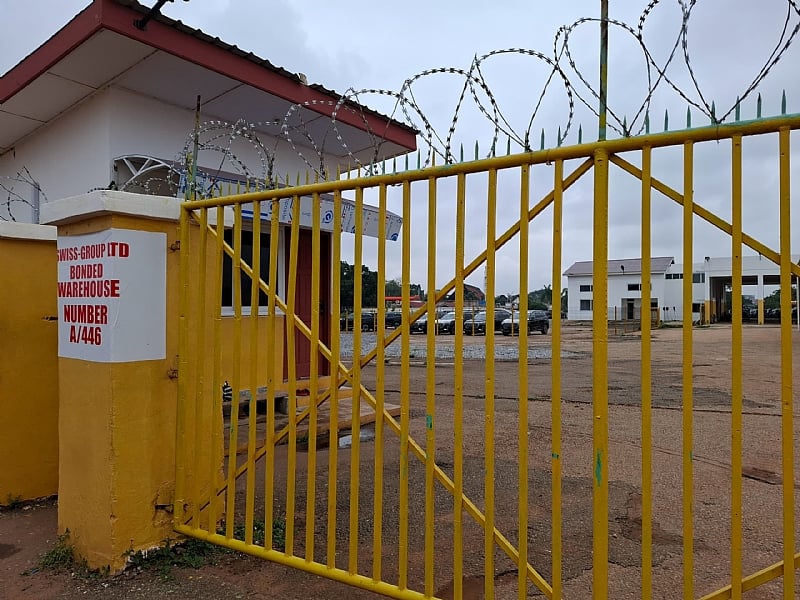The Driver and Vehicle Licensing Authority (DVLA) is embroiled in a land dispute concerning its former Accra Regional Office, situated within the Energy City enclave. The DVLA Board has publicly appealed to the government to intervene in the alleged sale of the property to a private entity, raising concerns about the misuse of compulsorily acquired land and the potential loss of valuable state assets. The Board Chairperson, Mr. George Spencer Quaye, led a site inspection that revealed the former office building had been repurposed as a bonded warehouse and leased to a private company, contradicting the stated intention for acquiring the land in the first place.
The controversy stems from the government’s compulsory acquisition of the land for the Energy City redevelopment project. This initiative required the relocation of several state institutions, including the DVLA’s Accra Regional Office. The DVLA was subsequently provided with a new office complex in Narhman, Ga East Municipality. However, this relocation has created further complications, as the ownership of the new office remains unclear. The DVLA Board asserts that the new property is not registered in the Authority’s name but rather belongs to a private developer, requiring the DVLA to purchase the land despite already possessing a suitable property that was appropriated by the government.
The DVLA Board maintains that the compulsory acquisition was predicated on the government’s commitment to the Energy City project. With the apparent abandonment of the original redevelopment plan and the subsequent private sale of the acquired land, the DVLA argues the property should revert to its original owner, which in this case would be the DVLA. The Board Chairperson has voiced strong objections to the sale of the land to private individuals after its compulsory acquisition for a specific public purpose, emphasizing that due process has not been followed and the DVLA’s ownership rights are being disregarded.
The implications of this land dispute extend beyond the immediate concern of the DVLA’s office space. It raises critical questions about the government’s handling of compulsorily acquired land, the transparency of land transactions, and the protection of state assets. The DVLA’s situation highlights the potential vulnerabilities of public institutions to land grabs and the need for clear legal frameworks and oversight mechanisms to prevent the misuse of public property. The Board’s appeal for government intervention signals a deeper concern about accountability and the need to ensure that public interests are prioritized in land development projects.
The DVLA, determined to reclaim its property, has outlined plans to pursue legal avenues to resolve the issue. Mr. Julius Neequaye Kotey, the DVLA Chief Executive Officer, has indicated that the Authority will formally petition the Attorney-General, Special Prosecutor, and National Security to investigate the matter and intervene. This multi-pronged approach reflects the DVLA’s resolve to pursue all available legal channels to secure its rightful ownership and prevent the permanent loss of a valuable asset. The DVLA’s actions underscore the importance of legal recourse for public institutions seeking to protect their interests and ensure accountability in land dealings.
The unfolding saga of the DVLA’s former Accra Regional Office serves as a cautionary tale about the complexities of land acquisition and development in Ghana. It underscores the need for transparent processes, clear legal frameworks, and robust oversight mechanisms to protect public lands and ensure their appropriate use. The DVLA’s fight to reclaim its property highlights the crucial role of legal recourse in safeguarding public assets and upholding the principles of accountability and transparency in government operations. The outcome of this dispute will have significant implications for the DVLA and potentially set precedents for future cases involving compulsorily acquired land.


